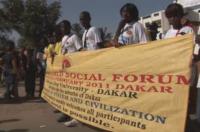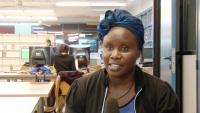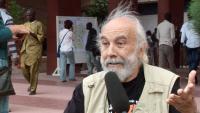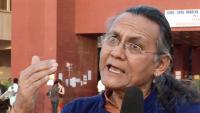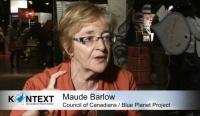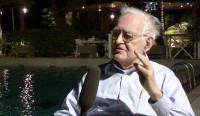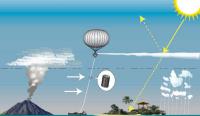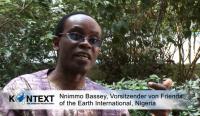With 90.000 participants, the World Social Forum was one of the biggests meetings in the history of western Africa. The Forum was marked by the revolutions in Tunisia and Egypt. Kontext TV has collected voices from North African activists and talked with Nnimmo Bassey, Chair of Friends of the Earth International and winner of the Right Livelihood Award, about the inspiring effects of the revolutions.
Other key issues of the Forum were: land grabbing, climate justice, water and the dangers of geo engineering. There were also several caravanes to Dakar, protesting against the migration policy of the EU. We talked to Wangui Mbatia from the People’s Parliament, Nairobi, and Nnimmo Bassey, Nigeria, about the importance of the Forum for social movements.
The WSF was created as an alternative to the World Economic Forum at Davos. Chico Whitacker from Brazil, one of the founders of the Forum and winner of the Right Livelihood Award, and Jai Sen from India, co-editor of the book „World Social Forum: Challenging Empires“, speak about the origins of the Forum and the role of the International Monetary Fund, the World Bank and the World Trade Organization.
Facing accelerated climate change and the crisis of global capitalism, social movements and the WSF are confronted with huge challenges. Susan George (Transnational Institute/Attac France), Immanuel Wallerstein (world system theorist at Yale University), Samir Amin (Third World Forum, Dakar), Pat Mooney (ETC group Canada) and Jai Sen (CACIM, India) speak about future perspectives for movements and the Forum.
